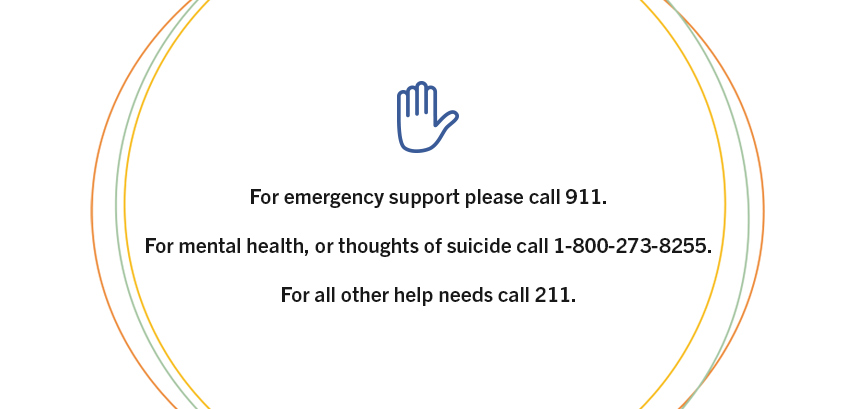The Foundation for Healthy Communities’ Behavioral Health Clinical Learning Collaborative is a grant-funded program designed to address the management and treatment of patients experiencing mental health crises in the emergency department (ED) setting and is funded by the Endowment for Health and the New Hampshire Charitable Foundation. The Collaborative members consist of New Hampshire Emergency Department (ED) and Community Mental Health Center (CMHC) staff working together with community stakeholders to design and adopt strategies that assist in the immediate evaluation, management, and treatment of patients with behavioral health emergencies and their longer-term care plans pending disposition to an appropriate level of care.
Since the start of the Collaborative, most NH hospitals have joined the CMHCs in adopting the Columbia-Suicide Severity Rating Scale (C-SSRS) as their screening tool for suicidal ideation. The Collaborative members designed the Suicide Screening & Intervention Toolkit to create a standardized yet resource-based approach to using the C-SSRS in hospital EDs. ED staff may feel hesitant or reluctant in asking patients questions about suicide, so the Collaborative developed this toolkit to provide guidance and experience from members on enhancing communication with patients and coordinated care teams, as well as a decision tree on risk levels – all of which can contribute to more efficient and effective standards of care. The Collaborative received constructive feedback and approval on the toolkit from both Kelly Posner, Ph.D. and the Columbia Lighthouse Project team and Dr. Posner presented on The Columbia Protocol to the Collaborative members. We will continue to update the toolkit with resources and best practices.
In addition, we are partnering directly with NAMI NH on their federal grant-funded Garrett Lee Smith Memorial Suicide Prevention Program to bring suicide screening and prevention training to hospital staff in the North Country.
According to the CDC (2018), suicide occurs at a rate of 13.4 per 100,000 individuals nationally, but in NH, that number is higher at 15.6 individuals per 100,000. The ED staff can play a critical role in identifying patients at risk for suicide. Studies in the U.S. show that close to 40% of patients who died by suicide contacted an ED provider in the 12 months before their death.[1]
All NH hospital EDs have representation in the Collaborative and share its vision to develop a well-integrated service system that provides the most appropriate care for patients experiencing a psychiatric emergency. The toolkit is designed to help NH EDs improve screening and recognition of suicide ideation, along with evidence, experiences and references to increase provider knowledge and understanding. It can be used to assist in implementing or updating suicide screening protocols and intervention initiatives.
[1] Jason B. Luoma, Catherine E. Martin, Jane L. Pearson. Contact with Mental Health and Primary Care Providers Before Suicide: A Review of the Evidence. American Journal of Psychiatry. 2002;159(6):909-916.
Appleby L, Shaw J, Amos T, et al. Suicide within 12 months of contact with mental health services: national clinical survey. BMJ. 1999;318(7193):1235-1239.
Ahmedani, B.K., Simon, G.E., Stewart, C. et al. J GEN INTERN MED (2014) 29: 870.



